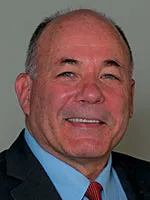Chairman, American Truck Dealers
Perspective: EPA’s GHG Phase 3 Rule Needs Fixing

[Stay on top of transportation news: Get TTNews in your inbox.]
One of my guiding principles, both personally and professionally, is to fix the problem; don’t place blame. The commercial truck industry definitely has a problem to fix.
In March, the Environmental Protection Agency finalized its Phase 3 greenhouse gas rule that sets overly aggressive, and frankly unattainable, standards to reduce emissions from heavy-duty vehicles. The Phase 3 rule requires vehicle manufacturers to convert an annually increasing percentage of their total vehicle sales to electric vehicles for model years 2027 through 2032 — which in turn will push toward a reduction of diesel product availability and force the purchase of more expensive zero-emission vehicles.
Industry leaders, including commercial truck manufacturers, fleet owners, owner-operators and commercial truck dealers, agree that this rule is unachievable, not only for our industry but for many U.S. businesses.
The country’s commercial truck dealers are not in the blame game, but we do need to fix the EPA’s rule to match reality. Commercial truck dealers already have made enormous investments to sell and service ZEVs — nearly $1 billion in this decade. We are putting our businesses on the line to support the transition to electric trucks, and we want our investments to pay off.

Pearson
However, we are hearing from our customers every day that electric commercial vehicles do not meet their needs, and today’s diesel engines — the cleanest in history — are required to keep America’s trucks moving and keep shelves stocked.
New technology almost always runs into challenges in its early days. ZEVs are so new that dealers like me are often working directly with the manufacturer to determine the issue and how to remedy it — adding to the time a vehicle is idle in the service department. The goal for most truck dealers when servicing a diesel truck is to get it on the road within 45 hours. Right now, in some cases, it’s taking up to 45 days to service a ZEV. And when a commercial truck is down, fleet operators are losing not only time, but money.
Charging infrastructure is the other major hurdle. It’s simply not ready; there are few commercial charging stations, and the chargers that are available can take up to 10 hours to fully charge a vehicle. In a business where time is money, this is a serious problem.
Further, cost is a major factor for commercial truck customers. Commercial ZEVs can be, on average, two to three times more expensive than their diesel-powered equivalents, according to the American Transportation Research Institute — an insurmountable hurdle for broad adoption considering the EPA time frame for deployment in the rule. Until ZEVs pencil out for fleets, commercial vehicle customers will hold on to their existing vehicles or purchase used trucks. This will delay fleet turnover, keeping older vehicles on the road longer and serving as a contradiction to the goal of decreasing emissions.
Corey Cox of the Tandet Group of companies discusses how early AI adopters are beginning to harvest the latest wave. Tune in above or by going to RoadSigns.ttnews.com.
As truck dealers, we have our own challenges: delays in charger installations caused by parts shortages, utility upgrades, permitting hurdles and concerns about the capabilities of local power grids.
In March, the Clean Freight Coalition released research on the costs and challenges to the electrification of the commercial supply chain. The findings were unsurprising to dealers; we are experiencing the challenges and costs firsthand every day, but what was shocking was the estimated total infrastructure cost to electrify the commercial fleet — $1 trillion.
We simply can’t force the adoption of electric trucks until the technology and infrastructure works for our customers. Unfortunately, despite the many meetings that industry leaders have had with EPA pointing out the obstacles to success, this rule is final.
We are turning our attention to Congress to help fix this problem and advocating for a transition toward zero emissions at a pace that is achievable for the technology, infrastructure and industry and ensures America’s commercial trucks can keep trucking.
Scott Pearson is president of Peterbilt of Atlanta and chairman of American Truck Dealers.
Want more news? Listen to today's daily briefing below or go here for more info:





